Austen did not write romances - a great problem with great literature.
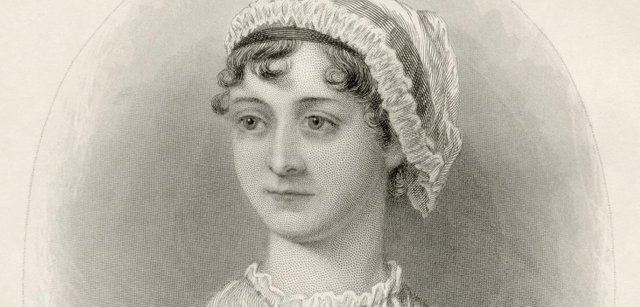
There are surprisingly few women in the history of world literature. Although they have appeared in our books since antiquity (Sappho). However, there are always fewer than men. We can explain it in three ways. The first - for some surprisingly obvious - would sound - women can not write as well as men. The second - social - would talk about how women have had worse access to education for centuries, they could not deal with writing, and many doors open to them today were closed. And when in the end women started to be able to write, or when a woman appeared in an artistic environment (let's say, like Mary Shelley), they were able to create works that had an indelible impact on our culture. Finally, the third argument, which is sometimes forgotten - what we consider to be classic, the most important works have been chosen by someone. The truth is that for many years people who had the most to say were men. And they often just either considered literature written by women as inferior, or they were not interested in women's perspective.
Jane Austen broke through all these barriers so that at the beginning of the 21st century she would still be considered a significant author. So significant that she got her place on a 10-pound note, replacing Charles Darwin. Her novels are read, filmed, reworked. And at the same time - you can hear incredibly often, surprise or even reluctance, resulting from the belief that here we have managed to exalt the author of romantic books above the state. Where the most important thing is only that the woman finds her husband. What, as you can read, clearly means that the book is not only less significant but also simply boring. Why anyone in the history of literature romance. Especially written by some provincial, daughter of an Anglican priest who did not know the world well only for her small microcosm of the English province. Where are the most important questions about the human psyche, analysis of our soul and everything that should provide a place in the history of literature.
I will not hide from you. When I read such opinions, I am sad to conclude that, unfortunately, Jane Austen is to some extent the victim of her success. Well, a lot of people get information about her prose not from reading books but from movies. Meanwhile, screenings, even very interesting, divine, or broken into several episodes, are rarely able to render the whole book. I love watching more movies of Austen prose but at the same time I realize that they create their own little microcosm, which does not necessarily have anything to do with the author's prose. This is well illustrated by Mr. Darcy's often wet shirt. It appears in several productions or variations on the subject. However, you can't find it in the book. Unfortunately, people surprisingly often think that if the screening is consistent with the development of the action in the novel, it basically replaces the reading. The problem is that the movie is always an interpretation. What's more, in the case of films, an interpretation focused on the intrigue and amusement of the viewer born and raised at specific times. What about Austen means the belief that in the English prose of the author, we will be interested in primarily romance elements. Why romance? Mainly because in many cases people who direct their stories to women are responsible for producing films. There is a belief that women are always the easiest to sell an affair. Besides, this is what many readers associate the most quickly - some women who are getting married. Boredom, for ladies. In the film, the romance is often interrupted by the adventures of the book. And not what determined its significance.
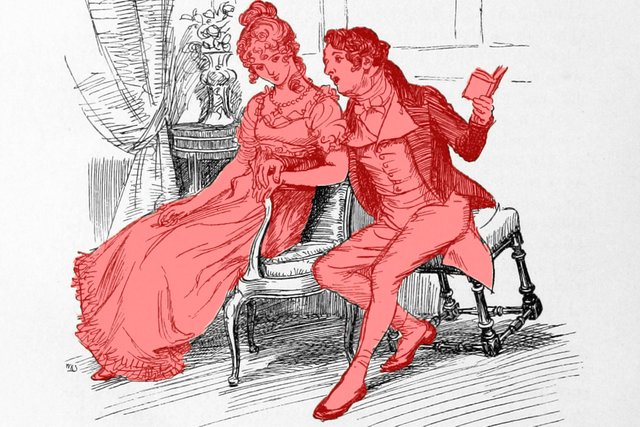
What are the main novels of Austen about? Not my dear, not love. Not even about marriage. They are about society and about the laws that govern it. Austen does something that is rare in literature. She looks at the surrounding society and shows us from both sides. First of all - it creates a gallery of very individualized, original characters - reading Austen today is not hard to see how many authors drew from her way of describing people in the company. What's more - the heroes of Austen, both men and women, are really rare. On the contrary, the author has no problem describing people who are stupid, naive, excessively exalted, charming, and stubborn. Her characters are rarely spotless - independent Elizabeth Bennet has a tendency to quickly judge people, Emma completely does not understand that she really does not know what's best for everyone, Catherine of Northanger Abbey is sometimes an incredibly exalted girl, Anne of Persuasion annoys how easy it is opinions of others. None of them are ideal. The truth is that there are not many novels in the literature classics that would be so good at just differentiating characters in the company. What's more, it is impossible to read Austen not to see that she was a woman not only with a perfect sense of observation, but also - let's not hide - quite malicious. Especially, stupid people did not have it easy with her.
But there is also the other side. Almost every novel by the author contains an element of social criticism. Most often, financial problems and matters related to inheritance are the cause of this disaster. In ”Sense and Sensibility” the father of heroines can not guarantee them financial security in any way. Dying leaves them at the mercy of his son from his first marriage. If we postpone looking through the prism of romance, this is the story of women who lose their homes over their due to such and no other inheritance law. Forced to leave the estate in which they lived, they grew up and to which, because of their gender, they have no rights. In the ”Pride and Prejudice”, the craze related to the release of new daughters is taken from a similar problem - if Miss Bennnet does not find husband - any husbands, then they will lose their homes. When a nightmare Mr. Collins arrives on stage - who gets a house in a fall, Austen makes fun of him, but at the same time, shows what a drama is for women in this situation - or they will marry Mr. Collins who completely does not reach their intellectual level, or they will so at his mercy. More - Austen shows us a woman for whom a marriage even with Mr. Collins is better than a lack of marriage. Because she is not so young anymore because she lives with her parents. Because there is no other option to gain independence. In ”Emma”, on the other hand, the heroine at all costs tries to force her poorly-born friend to find a husband from the upper classes. She does not see at the same time that for a girl from a lower social class, a much better choice will be a class closer to her. It's good to get married in Austen's opinion to get married not only out of love, but also in order to get along in terms of social differences. Even if it means, as in the case of ”Pride and Prejudice”, that the wife's family will rarely visit (in the films we will not see this but the book quite clearly suggests that Mr. Darcy still hated his parents in law). In ”Persuasion”, on the other hand, we not only have financial problems, but an instruction that people from the environment that surrounds us do not have to be right about what's best for us.
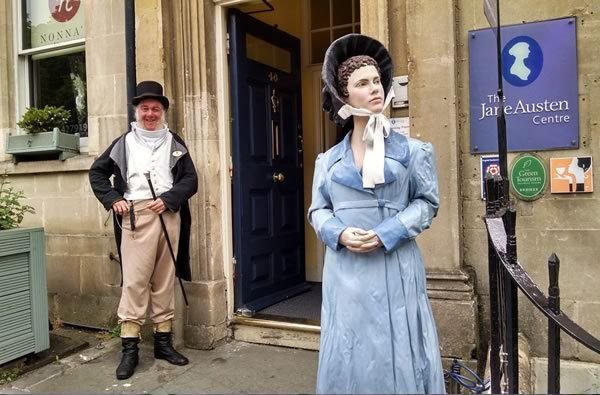
It is worth noting that in the author's novels, not only women fall victims of the rather oppressive social system. Also, men are often forced to make decisions not guided by the heart but the fear of disinheritance or dislocation of the family - if only because they do not share their parent's social ambitions. It is enough to look closely at the male characters for. ”Sense and Sensibility” to see that they are no less involved in social issues. On the other hand, in the ”Pride and Prejudice”, both Mr. Bingley and Mr. Darcy can not just give in to a heartbeat, forgetting social issues completely - the spectator's entertaining scene of Mr. Darcy is a record of a guy who can not fall in love with a girl who is from a very inadequate family. And at that time it had consequences. Such more or less unhappy guys - for more than just class or social reasons there is more in Austen's novels.
For some, good endings in the author's novels are proof that her novels are of lesser importance than other dramatic stories. The truth is that a good ending to such a story - overcoming social barriers, was not at all obvious in contemporary literature. XIX century literature was full of corpses of men and women who were punished for crossing the borders of their social group. Even if at first we were dealing with a wedding or apparent happiness, then the invisible hand of fate came and called everyone to order. The fact that Austen in her novels shows that people should rather choose the partners of people whom they love and understand with - and do not wait for this punishment, is not trivial, but innovative. It is such a step towards more contemporary selection of partners. Anyway, this ending, just like the elements of social criticism contained in Austen's novels, can be read as a question to the readers of that time - will we really pretend that everything in our society is all right? Should people really be so addicted to finance and inheritance?
Recognition of Austen's prose for romances, or literary kitsch is so much fun that the author herself, in the Northanger Abbey, mocked the novels at which the girls were playing then. All these dark, gloomy castles, creaking commodes, secret letters, ghosts of murdered wives, cloudy lovers. The abbey is, after all, a great satire on a gothic novel where a girl who has read too many such books is absolutely sure that she found in the secretary secret records that turn out to be a laundry bill. This incredibly witty (and let's not hide the mischievous) book, perfectly shows that Austen is not some old lady who sitting in the province dreams about perfect guys, but an intelligent woman who carefully looks at social mods and has enough wit and malice to criticize them. Anyway, her remarks are absolutely timeless and in my opinion - they could have been almost a word of a few years ago transferred to the emotions of youthful Twilight readers.
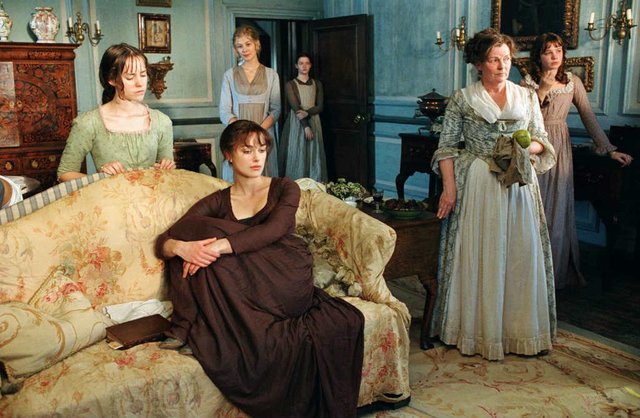
Defending Austen as a good author is the result of a rather unpleasant phenomenon related to the perception of literature. Well, I see two things here. First of all, we were taught that important and good literature is about great things. But the scope of great matters delineated by men. So when Austen writes about problems connected with the fate of women or marriage - so as to find a good husband but at the same time - good for us, she writes about the trivial matter. Why? It is hard to say, for a woman in England in the nineteenth century (at its beginning) marriage was a key issue. It determined how she would live. Will she live. Will she be happy. Will she be unhappy. Basic matters. Why do we consider this a stupid and insignificant topic? Similarly, I found complaints in various remarks that little is happening in these books. Again - mainly because they are based on the record of everyday life, social life, showing us the past from a different perspective. Books take place during the Napoleonic wars. Austen allows us to look at the historical event from an extraordinary perspective - a perspective of women far away from the battlefields, for whom the war is young officers stationed in the area. The prospect is interesting, because it is usually absent in the narrative about the past. And changing our perspectives.
The second thing is sadder. I have the impression that we can not look at women from the past. We require them to be contemporary women or at least those who behave in such a way as to undermine gender stereotypes. Women are different in Austen. They do not necessarily undermine any stereotypes, even the bold Elizabeth Bennet changes the approach to Mr. Darcy slightly when she sees his wonderful property and imagines that she could be his mistress. These are not women who want to revolutionize the world or be someone else. They are often smart, a bit cheeky. Austen does not hide the fact that she thinks that the skills required of young women tend to be nonsense, but she shows us the way they were. And to tell the truth, they seem to be much more human than the model characters written for the thesis. And at the same time - these are not necessarily innocent girls - it can be clearly seen in the aforementioned ”Pride and Prejudice” where, in total, none of the sisters Bennet had any doubts that their younger sister who had married a beautiful officer had to sleep with him. This suggests to us that the world in which these women lived was perhaps a little different than can be inferred from their boring daily activities.
Another thing, I found a complaint that really why read about the adventures of people who never had to work. It would be good to see in the author's novels that drama of women who, even with very little money, can not go to work. This is a specific situation - when you are so well-born that work - especially women - was absolutely out of the question, and at the same time deprived of livelihoods enough that you are dependent on the care of your relatives. Reading about such people perfectly shows us how complicated social relations were in the past. And how much we can not translate modern standards into history. This leads to a dead end where we have a grudge against the heroes of the past that they are the heroes of their times. What again prompts you to read - to get to know the world which from our perspective may seem completely alien. For example, the problem that one of the daughters left somewhere with an officer can be trivial today. Then she meant that the rest of the daughters would never find a husband and be doomed to poverty. All these trivial and "affair" problems were indeed fundamental for the woman at that time. Bad behavior of the family at the ball may have affected her chance of finding a better partner and, consequently, a better life. It was a nightmare of this social and social cage in which the heroes found themselves.
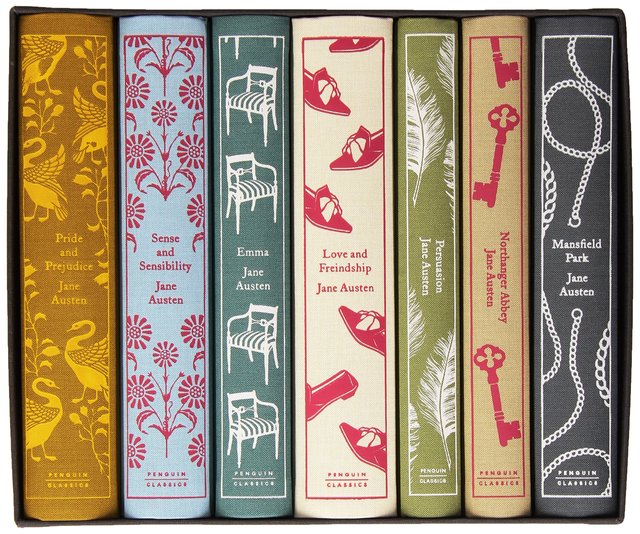
Austen's novels treat many people as lighter literature, which allows you to escape from the present and immerse yourself in peaceful and wonderful stories with happy ending. However, if we look closely, there is not much space to escape. reading the author's novels, we can thank God that many, many years later, women do not have to worry about dishonest inheritance law, disinheritance or lack of the right to inherit women. Postulated by Austen to follow my heart - which was not at all obvious - became the final norm. And at the same time, I am sorry that such novels - ahead of their time in how they portrayed people and social life, postulating social changes and criticizing what they found - for many people will be a scruffy, a romance or reading for old women. And do you know why this is so? Because a woman wrote it and did not write about problems important from the point of view of men. She wrote about what is important from the point of view of women. Women in that moment in history. It's amazing how many people do not know how to appreciate it.
You can not like Jane Austen's novel. They can get bored, although they defend themselves better than books written even later. Mainly because of the language and freedom with which they were written. Well-outlined figures, even if rooted in historical customs, are, very modern in character. But Austen is not the author of poor literature. More, she is not the author of romance. She is not on the list of the most important readers in history by accident. It is not a funny addition to the great literature. She is the author of great literature. And now you have to ask a fair and serious question - is not her the biggest offense of being a woman? She wrote about women. She wrote about what is important for women. And in this masculine world, it does not fit us completely with the definition of what should be great literature. Fortunately, she probably would not care. And I do not think English people care either. Because the lady in the bonnet is on ten pounds. What should be enough for ”Pride and Prejudice” in hardback. To read. Not watching.
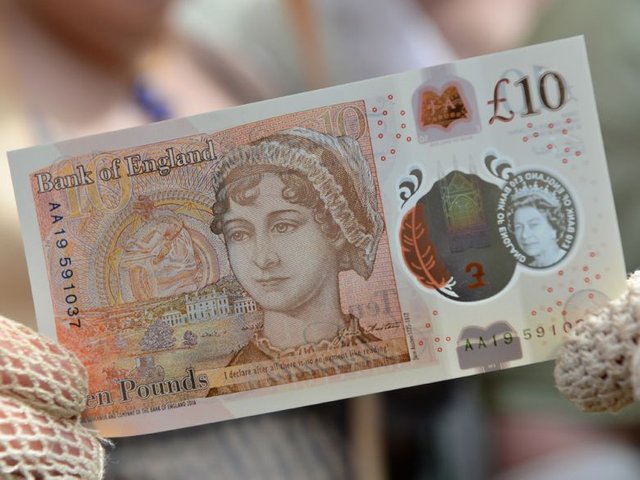
Hi there @anaerwu!
Jane Austen you say.. hmmmmm she seems very familiar. Sorry but the only thing comes to mind is the movie, Austen powers. Are you familiar with it..im sorry its a bit off topic.
Anyway, i seem to remember that she is definitely not the actress in the movie mentioned above. Rather she was one of the amazing novelist we ever have.
Thank you for putting emphasis to this lovely woman and all ger contributions to our history.
Cheers!❤
Posted using Partiko Android
Thank you, I always try my best.
Posted using Partiko iOS
You are moat welcome..
Posted using Partiko Android
Me encantó tu post, además de compartir este contenido tan interesante y enriquecedor; desarrollaste tus ideas y argumentos de manera clara, crítica y coherente. ¡Felicidades!
Te saluda @yohanys de venezuela
Thank you.
Posted using Partiko iOS
Such an amazing history in there for you to share with us. Even though am not a fun of literature but i loved everything in your blog and i must say you killed it. Great work and i wait to learn more amazing history from your end soon
Thank you for your kind words. I'm really glad that so many people find my post interesting.
Posted using Partiko iOS
The pleasure is all yours. And great works never go waste.... This is my way of saying you are welcome though
Posted using Partiko Android
Hi anaerwu,
Visit curiesteem.com or join the Curie Discord community to learn more.